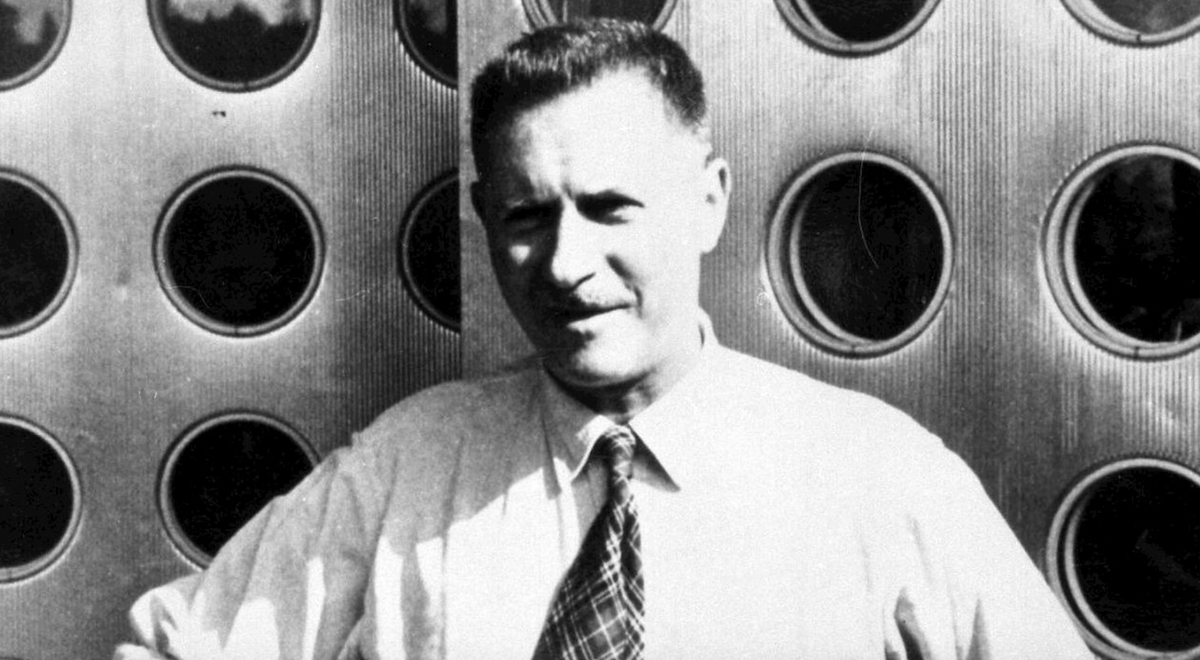French police investigating the forgery of works by Jean Prouvé arrested a 42-year-old man in Paris in January for the sale and manufacture of fakes.
The case came to light after three leading gallerists bought alleged Prouvé furniture from an auction at Artcurial in April 2008. The galleries, Jousse Entreprise, Galerie Patrick Seguin and Galerie Downtown-François Laffanour, paid a total of €220,000 for their separate acquisitions of a table and two chairs from the “Modern Design for Living” auction. The dealers had “expressed reservations about the objects” before the sale, according to François Laffanour, who says that their concerns were “dismissed by Artcurial and its experts, Fabien Naudan and Félix Marcilhac, who assured us that the furniture and its documentation would be included in the fourth edition of Peter Sulzer’s forthcoming Prouvé monograph”. This documentation, including photographs and letters claiming to prove date and provenance, also appeared in Artcurial’s sale catalogue. Marcilhac and Naudan, who is an associate director at Artcurial, declined to comment.
Unconvinced, the dealers hired a number of specialists and also sent the works to a laboratory in Paris where the pieces were analysed and found to be fake. The gallerists filed a joint complaint in May 2009 with the French Central Office for the Fight Against the Trafficking of Cultural Goods (OCBC). The head of the police department, Colonel Stéphane Gauffeny, issued an order to place the suspect under surveillance on 12 January this year, and subsequently arrested him on 18 January. The suspect is referred to by police as Abdelhakim B, but cannot be named in full because the investigation is ongoing. In addition to the faked works sold at auction, French authorities seized a number of chairs, a trapeze table and various other pieces from the suspect’s premises in Paris. He is charged with the counterfeiting of intellectual property and the forgery and use of private documents, as well as involvement in organised crime. He has been forbidden from leaving the country until the case goes to trial, Gauffeny says. Several other people were also arrested, but released without charge.
The dealers hope to “bring to a stop these types of criminal activities, which are detrimental to the positive impact that collectors have on the art market”, Patrick Seguin says. Laffanour says they want to make sure that the artist’s oeuvre “on which we have spent considerable time, energy and resources, is respected”.
Prices for Prouvé have been rising since the mid-2000s and the three dealers who brought the complaint are at the forefront of the market. Galerie Patrick Seguin sold a series of chairs for $30,000 each at Design Miami in December where Galerie Downtown was showing a massive Prouvé shed, priced at €1m, which sold for an undisclosed price. While an auction record was set at Christie’s New York in 2007 when a prototype Maison Tropicale sold for $5m, the vast majority of the biggest Prouvé auction results from the past five years have taken place at Artcurial, including the €1.8m sale of a Structure Nomade last October (est €1.5m-€2m).
Abdelhakim B is not the first person to be charged with making fake Prouvé works in recent years. In 2008, six people were arrested in Paris and charged with selling and manufacturing counterfeit Prouvé furniture, as well as works by other modernist designers.
“I’d imagine that Prouvé forgeries exist due to the fact that the market is so strong,” says Laurence Seguin-Bergerot of Galerie Seguin. “On top of which, the industrial mode of production [of Prouvé furniture] means that the [number] of pieces produced is sometimes difficult to determine.”
The OCBC’s Gauffeny says there may be more forgeries uncovered in Abdelhakim B’s home address in Nancy as the investigation continues.


